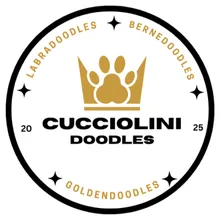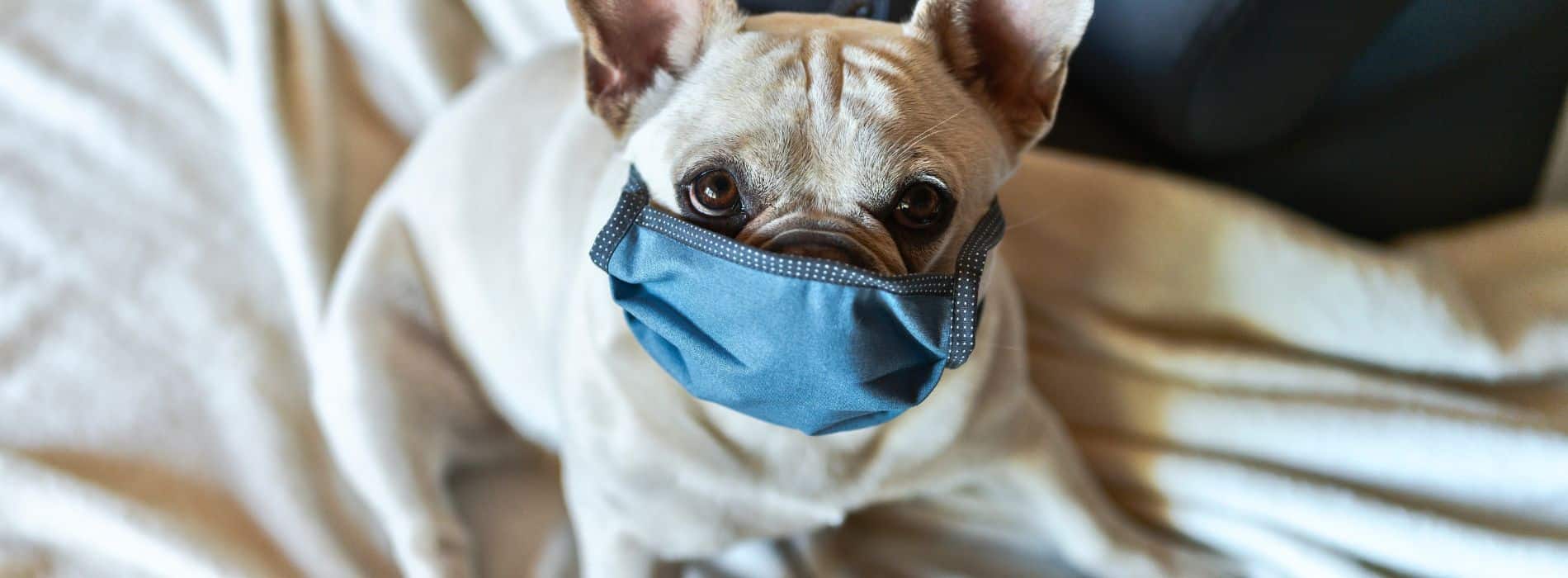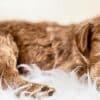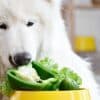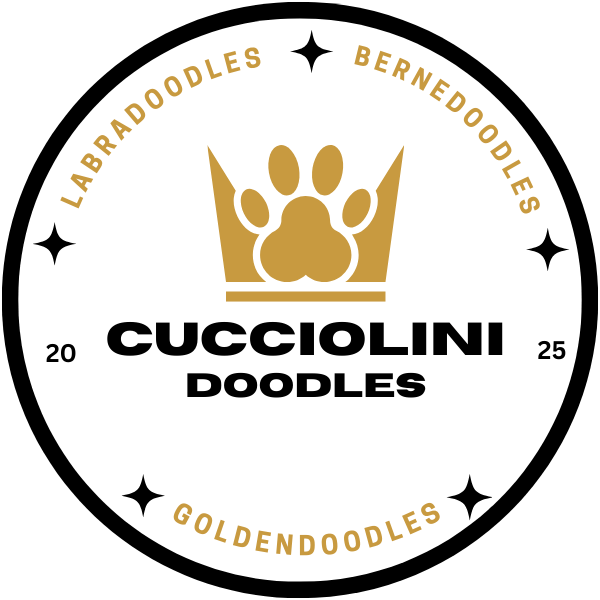Pets have played a significant role in providing comfort and emotional support during the COVID-19 pandemic. Their unwavering loyalty and unconditional love have brought a sense of normalcy and solace to our lives. Let’s appreciate these precious companions who stand by our side, warming our homes and hearts during this crisis.
COVID-19 and Our Precious Pets has affected human lives and raised concerns about our beloved pets’ health and safety. As responsible pet owners, staying informed and taking necessary precautions to protect their well-being during this challenging period is crucial. Let’s explore how COVID-19 can impact our pets and what steps we can take to keep them safe and healthy.
AT “Labradoodles by Cucciolini in Ontario” owners have many questions about the risk of contracting.
COVID-19 and Our Precious Pets and the spread to Humans and your beloved Pets. While there is evidence that COVID-19 can infect animals, there is currently no evidence to suggest that pets or other domestic animals can infect humans with the virus.
What should pet parents do to help protect against COVID-19 and Our Precious Pets?
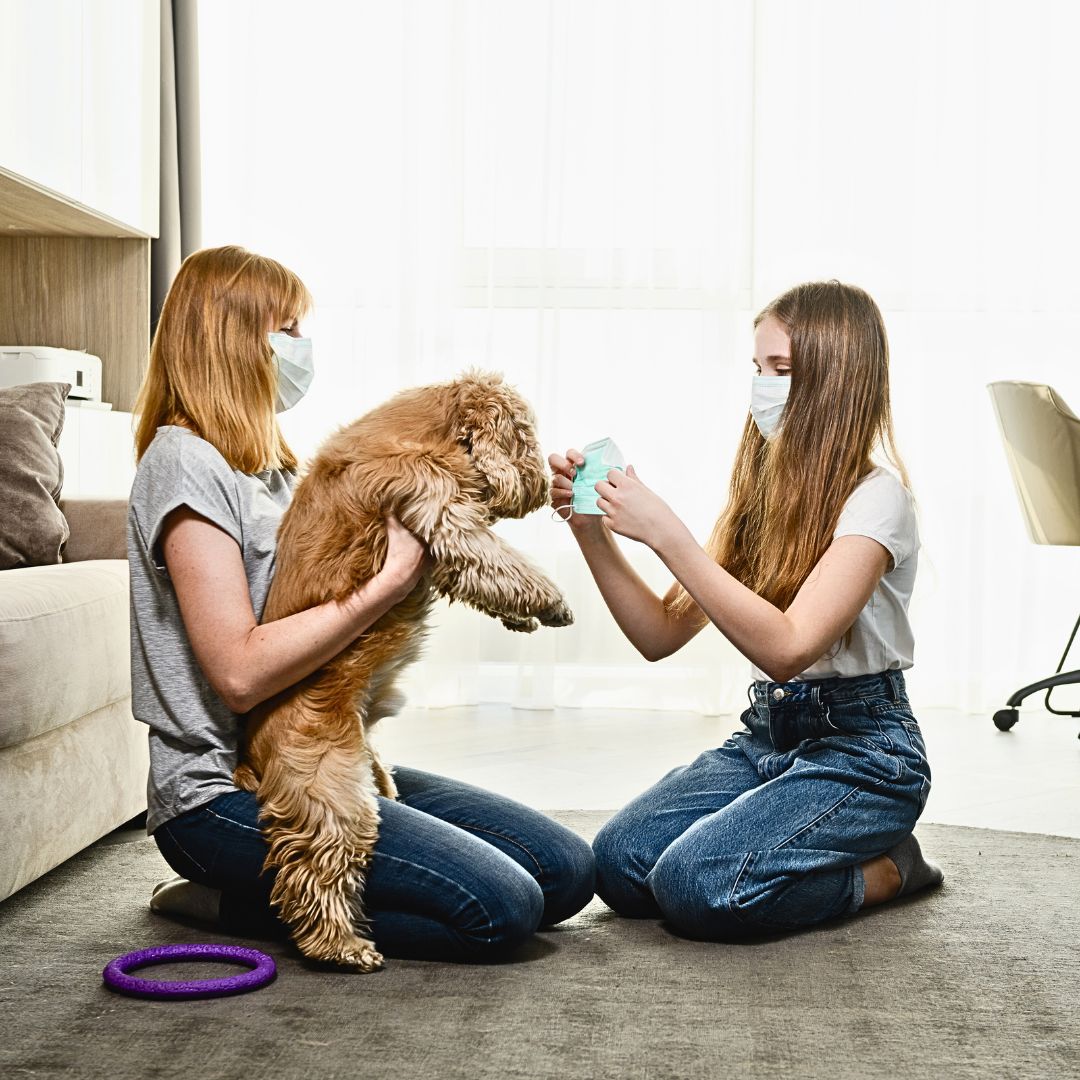
These days, dogs play a very significant role in people’s lives. People often feel isolated and lonely, primarily dependent on their pets for psychological support, comfort, and companionship. You should pay more attention to your pet and give them extra love. So don’t be distant from people—on the contrary—cuddle your pup!
She said the human-animal bond is vital for animal health. With so many people working from home, this is a great time to sit back and enjoy your time with your pet. “Go for a walk. Keep your distance, but go for your walk. Play ball in your backyard with your dog, and play with your cats with their cat toys. Even fish. Relax, enjoy your time with them because it is perfect for our health to reduce our stress.”
Can my Labradoodle go out for a walk?
Unless you’re under strict quarantine rules, you’ll need to take your dog out for walks so they can go potty and exercise. It’s good for your mental well-being and your pets. Remember to stay 6 feet away from other people and pets.
Self-quarantine can be hard in a city where physical space is limited. However, some people with pets may find that training them to use pee pads makes it possible. You can also use artificial grass or sod, which might make the process easier for your dog.
You must do your best to help your pup stay calm, so try acting like you generally do before going for a walk. Get the leash and some poop bags and take them outside.
When you’re on leash duty, and your pup shows signs he has got to go, take them over to the area you want, then give them the liberty to do their thing.
(For most pets, this is in the morning, after a walk, feeding, or after a nap.)
If your dog seems like they’re not getting it, don’t worry. Just go about your day as usual and watch for signs that they need to relieve themselves. Then try again later on.
When is it possible to let my dog socialize with other pets?
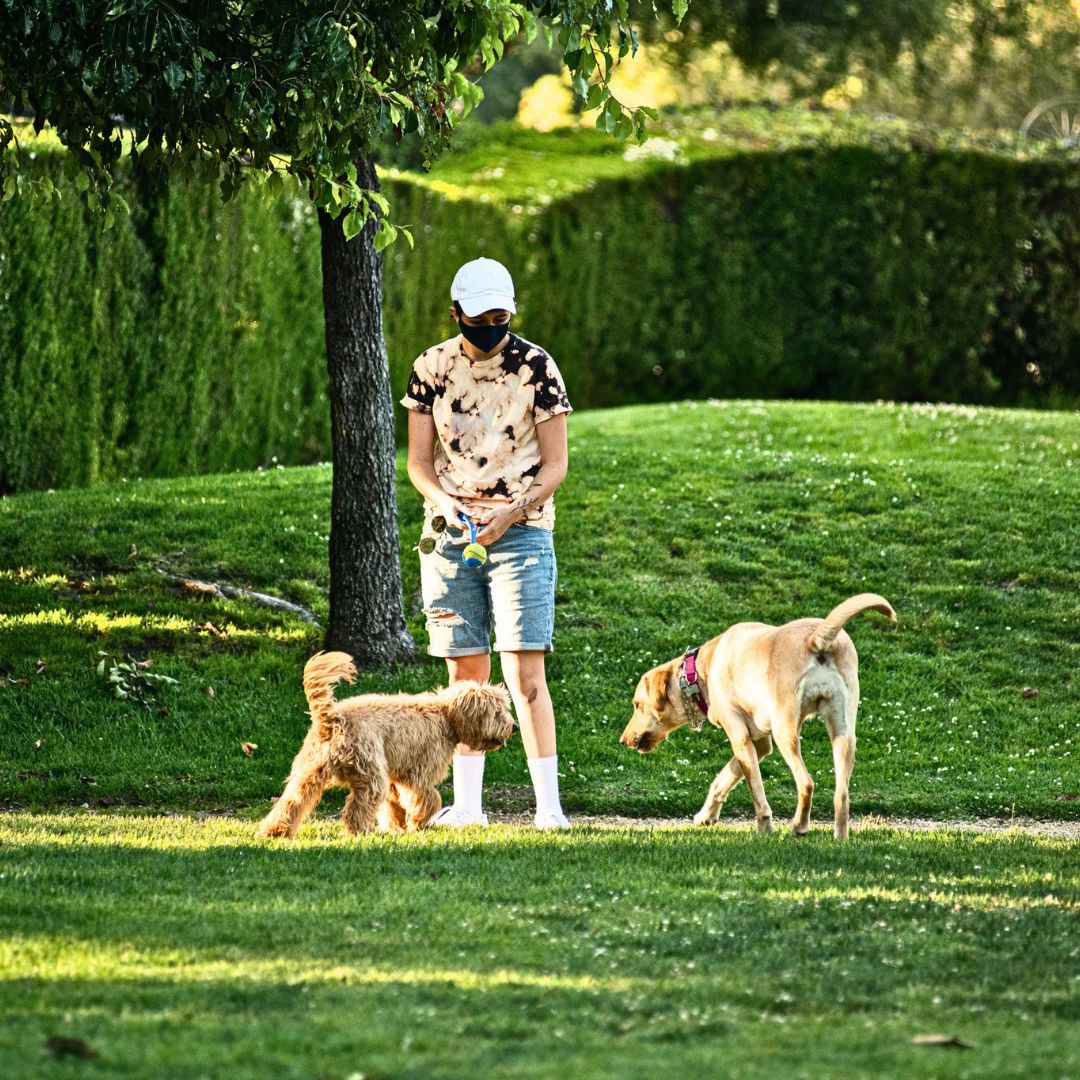
Out of caution, you should avoid that doggy get-together with your friends or doggy daycare. As with general social distancing, the goal is to limit all types of contact as much as possible.
“Just like we don’t want people mixing in large groups, we don’t wish pets were mixing in large groups.”
What can I give my pet if I have no pet food?
In many instances, you should use caution – if they are sensitive to dietary changes, have diarrhea or vomiting with changes to their diet, or have food allergies.
It is important to consider your pet’s sensitivity to dietary changes and any diarrhea or vomiting that may occur with changes to food.
It is always advisable to consult with your veterinarian regarding your pet’s dietary needs. If that is not possible, most dogs will enjoy and tolerate a mixture of cooked rice and cottage cheese or cooked meat (such as chicken, turkey, or hamburger) in equal parts.
They may also prefer canned fish, turkey or chicken (or cottage cheese), and cooked rice.
Many dogs can eat foods similar to what we eat for a short time, but avoiding spicy or high-fat foods is important. It would help to carefully remove any bones and excess fat before feeding your dog. Additionally, avoiding giving them grease or fatty drippings from cooking meats is important.
How do we keep our dogs from becoming virus carriers?
- Walk on a leash when outdoors.
- Please avoid contact with persons known or suspected of having exposed him to “COVID-19 and Our Precious Pets.” Pets can sometimes contract the virus, so wash your hands before and after you handle them to prevent them from getting it.
- In contact with high-risk species, cleaning and disinfecting animal contact surfaces as soon as possible is vital. For example, if you have had contact with a dog showing signs of flu-like illness, ensure that all areas that may have been in close contact are clean and disinfected.
- If your pet shows symptoms of infection, such as sneezing, coughing or lethargy, immediately call your vet and keep them indoors to prevent spreading.
- It is unclear whether animals such as ferrets or rats can get infected. However, dog disease symptoms are often associated with common viral and bacterial infections that cannot be transmitted to people (e.g. kennel cough and canine flu).
- Consuming wildlife, such as bats that may carry “coronavirus,” may have implications in this global outbreak as the source.
- If your new pet is and is typically more challenging to care for, it should be kept separate from other animals. You should also consider that these animals can sometimes carry viruses (even though they’re not supposed to), so please consult your veterinarian. Exploring options for keeping your pet indoors might be a good idea.
- Our research does not indicate that household pets are involved in transmitting coronavirus to humans.
- As pet owners, we must keep our families and pets healthy. Although this plan will require more time and effort, it is crucial to practice responsible pet ownership by keeping your furry friends clean.
Should pets be groomed or cleaned more often?
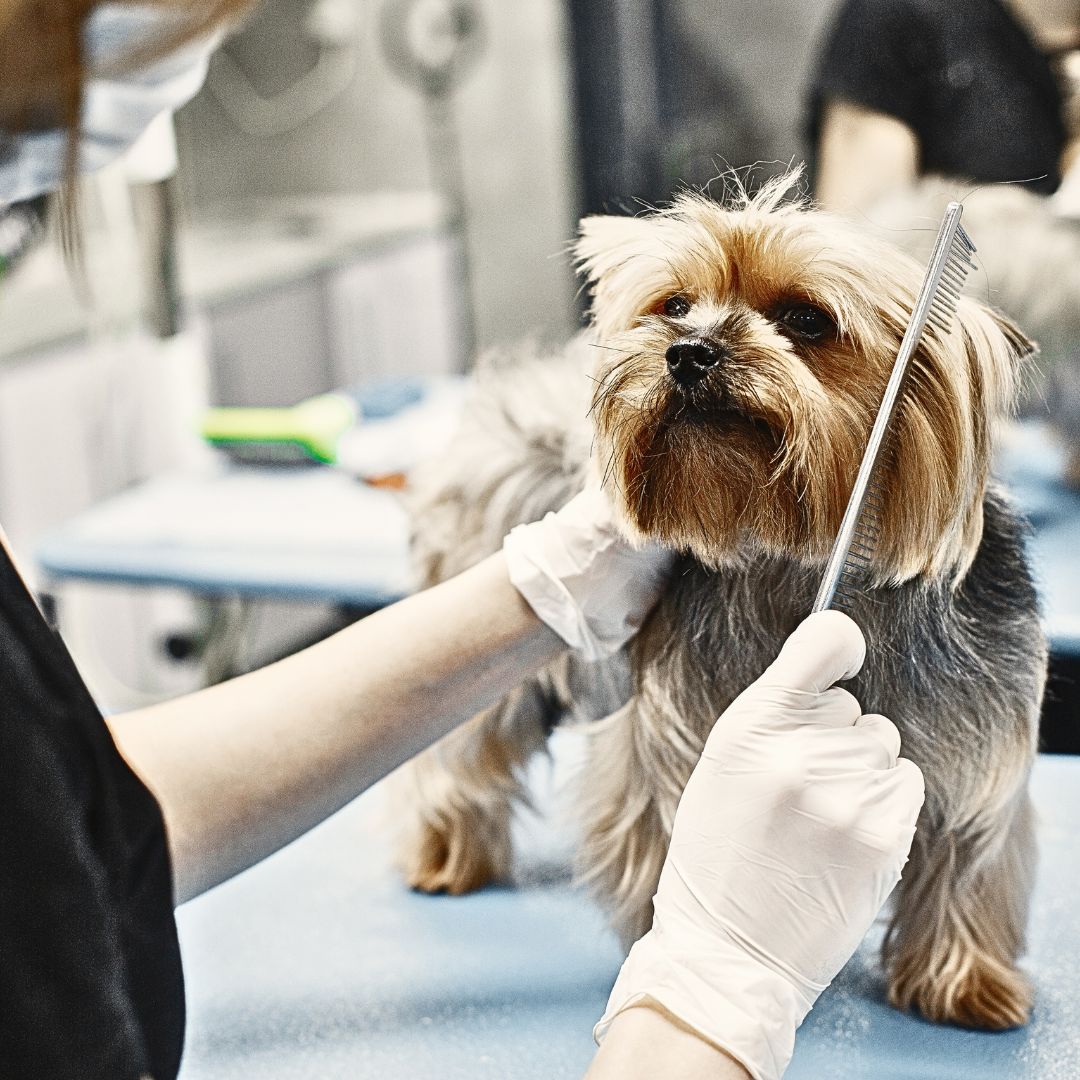
Not necessarily. Suppose there is no known novel coronavirus exposure in the household, and no one in the home is sick. In that case, you only need to adjust your regular grooming habits if you ordinarily have your dog groomed by a professional groomer. In the spirit of social distancing and for your (human) protection, I’d recommend bathing your dog at home only during this time. It will help them avoid other peoples’ hands, faces, and possible coughs and sneezes, which they could bring home to you (think about the favourite teddy bear example).
Does my dog also need a mask?
No! Putting a mask on the DOG is not recommended. A face mask could be distressing for pets and affect their ability to breathe normally, particularly in flat-faced breeds. To help stop the virus from spreading, washing hands with warm water and soap is vital (especially before and after handling your pet and their food).
Can my pet spread the coronavirus to my family members?
It’s important to note that the coronavirus strains that affect dogs and cats cannot be transmitted to humans. These strains have been around for many years, and there is no evidence that they can mutate into a form that can jump to humans. Viruses most likely mutate when they are new and unstable. Therefore, it’s highly unlikely that we will contract COVID-19 and Our Precious Pets.
It’s important to note that the virus can survive on surfaces. If an infected person pets your dog, the virus could be carried on your pet’s fur. If COVID-19 spreads to your area, avoid contact with sick people and take necessary precautions to ensure your pet’s safety.
Follow the tips for preventing COVID-19 and Our Precious Pets with disease, which include:
- You wash your hands for 20 seconds, especially after eating in the bathroom. Ensure you wash your hands with soap and water again after coughing, sneezing, or blowing your nose.
- Make sure to use a sanitizer that contains 60% alcohol or higher.
- Clean frequently touched objects, such as cell phones, purses, and computers, with disinfectant wipes or spray.
- It is recommended to refrain from coming into contact with individuals who are ill.
- It is important to refrain from touching your face to prevent the spread of COVID-19 and protect your health. Please avoid contact with your face, especially your eyes, nose, and mouth, as they are the most susceptible areas for germs to enter your body.
- Staying home when you feel unwell is important to prevent illness from spreading to others.
Is it true that hand sanitizers/anti-bacterial gels are poisonous to dogs?
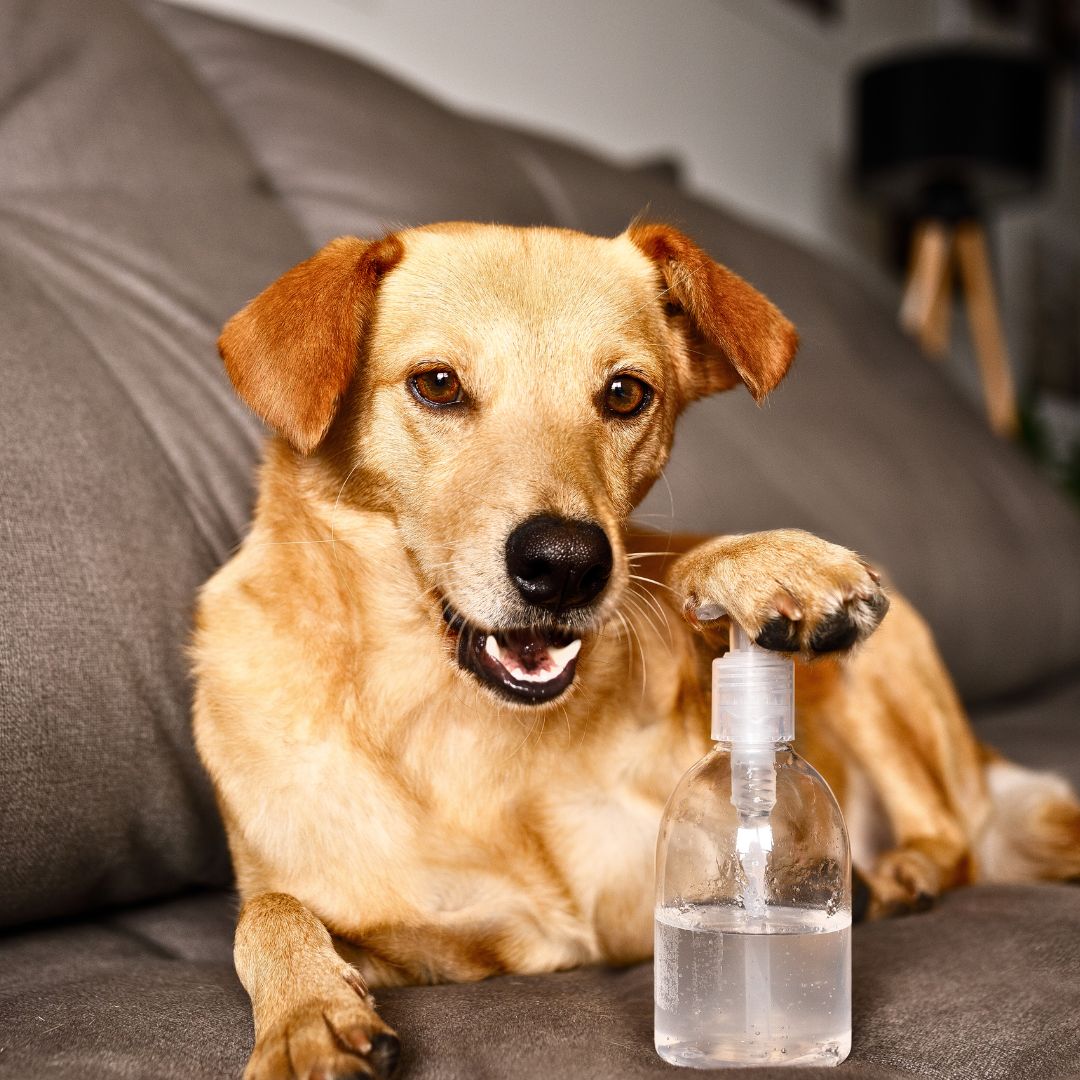
We are aware of a false post shared on social media that suggests hand sanitizers contain Ethylene Glycol. This chemical is found in antifreeze and is highly toxic to pets. It isn’t true – hand sanitizers contain ‘ethanol’ (alcohol), not ethylene glycol. Ethanol (alcohol) can be harmful if ingested in a large quantity (i.e. an entire bottle), but it evaporates quickly and IS NOT HARMFUL if you lick it in small amounts from your skin or pet’s fur.
Please do not let this false information prevent you from using hand sanitizer products at this critical time.
What if I have to self-quarantine because of “Covid-19 and Our Beloved Pets”?
The number one recommendation is to limit contact with your pet. It includes petting, snuggling, kissing or licking, and sharing food.
Pet owners should also try to make arrangements for their pets in case of illness, but if there is no alternative, wash your hands before and after every interaction.
Service animals should be permitted to stay with their handler. Ensure to wash your hands and limit contact.
Humane Society always recommends washing your hands and practicing good hygiene. Contact your vet immediately when handling or around animals if your dog shows significant health changes.
